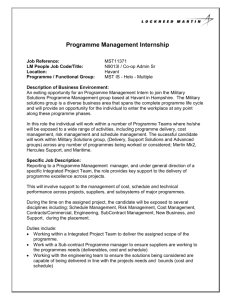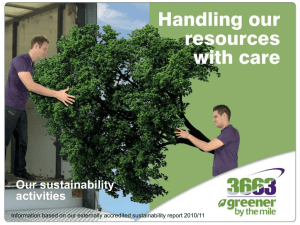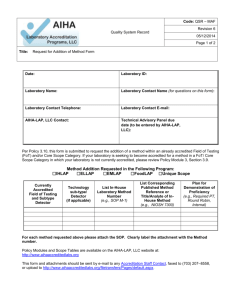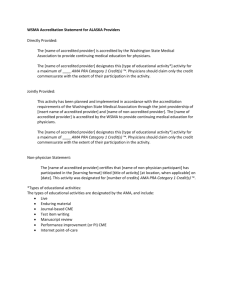Definitions - Leicestershire County Council
advertisement
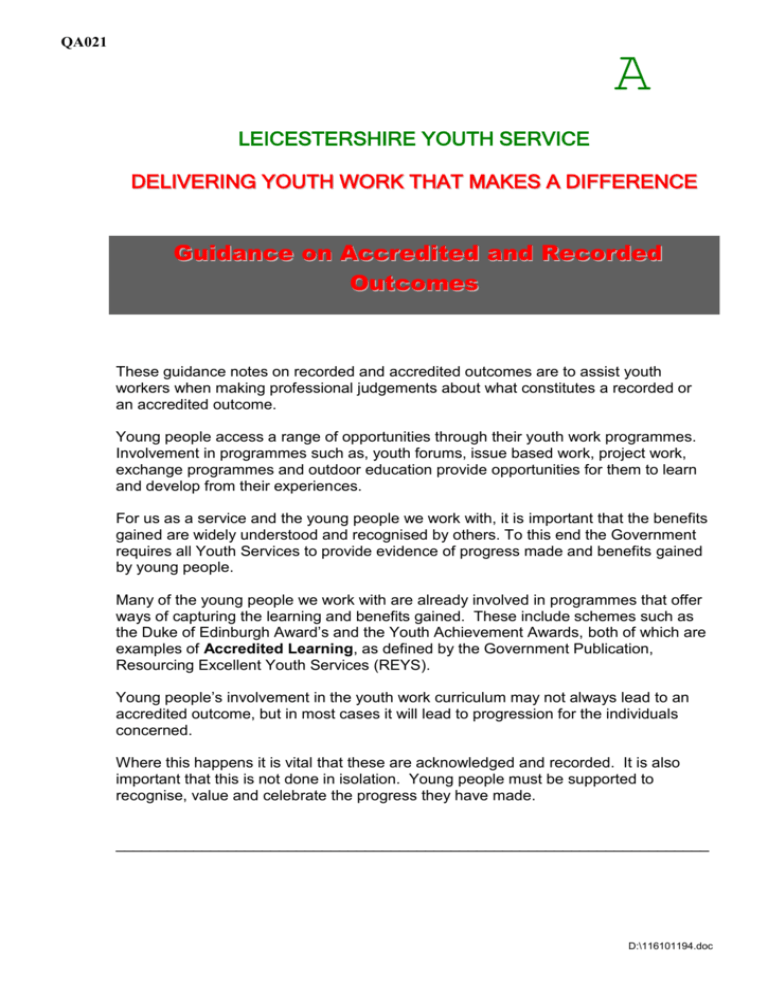
QA021 A LEICESTERSHIRE YOUTH SERVICE DELIVERING YOUTH WORK THAT MAKES A DIFFERENCE Guidance on Accredited and Recorded Outcomes These guidance notes on recorded and accredited outcomes are to assist youth workers when making professional judgements about what constitutes a recorded or an accredited outcome. Young people access a range of opportunities through their youth work programmes. Involvement in programmes such as, youth forums, issue based work, project work, exchange programmes and outdoor education provide opportunities for them to learn and develop from their experiences. For us as a service and the young people we work with, it is important that the benefits gained are widely understood and recognised by others. To this end the Government requires all Youth Services to provide evidence of progress made and benefits gained by young people. Many of the young people we work with are already involved in programmes that offer ways of capturing the learning and benefits gained. These include schemes such as the Duke of Edinburgh Award’s and the Youth Achievement Awards, both of which are examples of Accredited Learning, as defined by the Government Publication, Resourcing Excellent Youth Services (REYS). Young people’s involvement in the youth work curriculum may not always lead to an accredited outcome, but in most cases it will lead to progression for the individuals concerned. Where this happens it is vital that these are acknowledged and recorded. It is also important that this is not done in isolation. Young people must be supported to recognise, value and celebrate the progress they have made. _____________________________________________________________________ D:\116101194.doc Definitions Accredited Outcomes There are a number of national schemes available to accredit informal learning opportunities. These include: Duke of Edinburgh’s Award Youth Achievement Awards Open College Network Courses, eg YouthTrain ASDAN Courses. And, at a local level the Leicestershire Local Youth Work Award is also available to staff for recognising young people’s achievement. Programmes that offer accreditation using one of the aforementioned schemes will count as an accredited outcome. This can either be completion of the full award or one module/challenge of a national scheme. However, young people must complete the full 30 hours of the Local Award for it to be counted as an accredited outcome. In addition, courses such as first aid, junior sports leader award and activities offering outdoor education qualifications, for example British Canoe Union Awards will also count as accredited outcomes if delivered as part of the youth work curriculum. Remember youth work is about the personal development of young people so engagement in accredited programmes should start from what is best for the young person. Recorded Outcomes A recorded outcome is achieved when a young person has made progress in an area of their life as a result of the support they have received through their involvement in youth work. Recorded outcomes will be specific to the young person and will reflect their particular circumstances. So, what counts as a recorded outcome for one young person may not be the same for another. Examples of recorded outcomes include: A young person returning to school as a result of the support and guidance received from a youth worker A young person has participated in a 5 hour curriculum programme on a topic of their interest Youth worker has noticed changes in the behaviour of a young person. This could be the young person being more active in the youth work programme As a result of guidance received from a youth worker the young person has accessed specialist services, e.g. drug and alcohol services or housing and has acted on advice given. Young person has met a target they have set themselves in their personal development plan e.g. stop swearing; have used the phone to get information. Judgements about what is a recorded outcome should be a joint process involving the young person and the youth worker. Capturing recorded outcomes There is not a standardised format for recording recorded outcomes. Workers should use methods that are appropriate to the context in which they work. The narrative should describe the learning or benefits gained by a young person. As such recorded outcomes can be captured on: session recording sheets curriculum planning proforma individual worker or young person diary personal development plan credit certificate for the local award photographs as long as they have a description of the event/activity newsletter, again must have a description of the activity It is important to stress that recording an achievement as a recorded outcome for a young person will be relative to that individual. It is about their development. Example of a recorded outcome noted on session evaluation sheet. Dawn has been attending youth club for a few weeks now, at first she was quite shy and withdrawn but tonight I noticed some changes in her demeanour. She seemed more willing to participate and was contributing to the discussion. At the end of the session I had a quick word with Dawn who said that she felt much more confident about speaking out and it was as a result of the things we have done in previous weeks' programmes The following are examples of what could be counted as recorded outcomes for young people. It is not a definitive list and should be used as a prompt. Re-engaged with education or other learning opportunities Access specialist support services, e.g. sexual health, housing, Connexions, drugs & alcohol etc. Changes in attitude and behaviour e.g. no longer uses abusive or aggressive language, able to express views or opinions without being aggressive, growth in confidence and self-esteem Continuous attendance and involvement in the youth work programme Involved in peer lead activities Gain new skills Increase in knowledge and understanding in a topic of particular interest Young person has developed positive relationships with peers. National Performance Indicators Leicestershire Youth Service Must be in contact with 25% of young people aged13-19 Must be working with 15% of the 13-19 population as participants in youth work 60% of participants must gain a recorded outcome 30% of participants must gain an accredited outcome Detailed definitions of recorded and accredited outcomes along with information about national performance indicators for Youth Services can be found in the Local Youth Work Award Booklet For further information on curriculum and accreditation contact M Lewis, Room G16, County Hall Tel: 0116 265 6335
